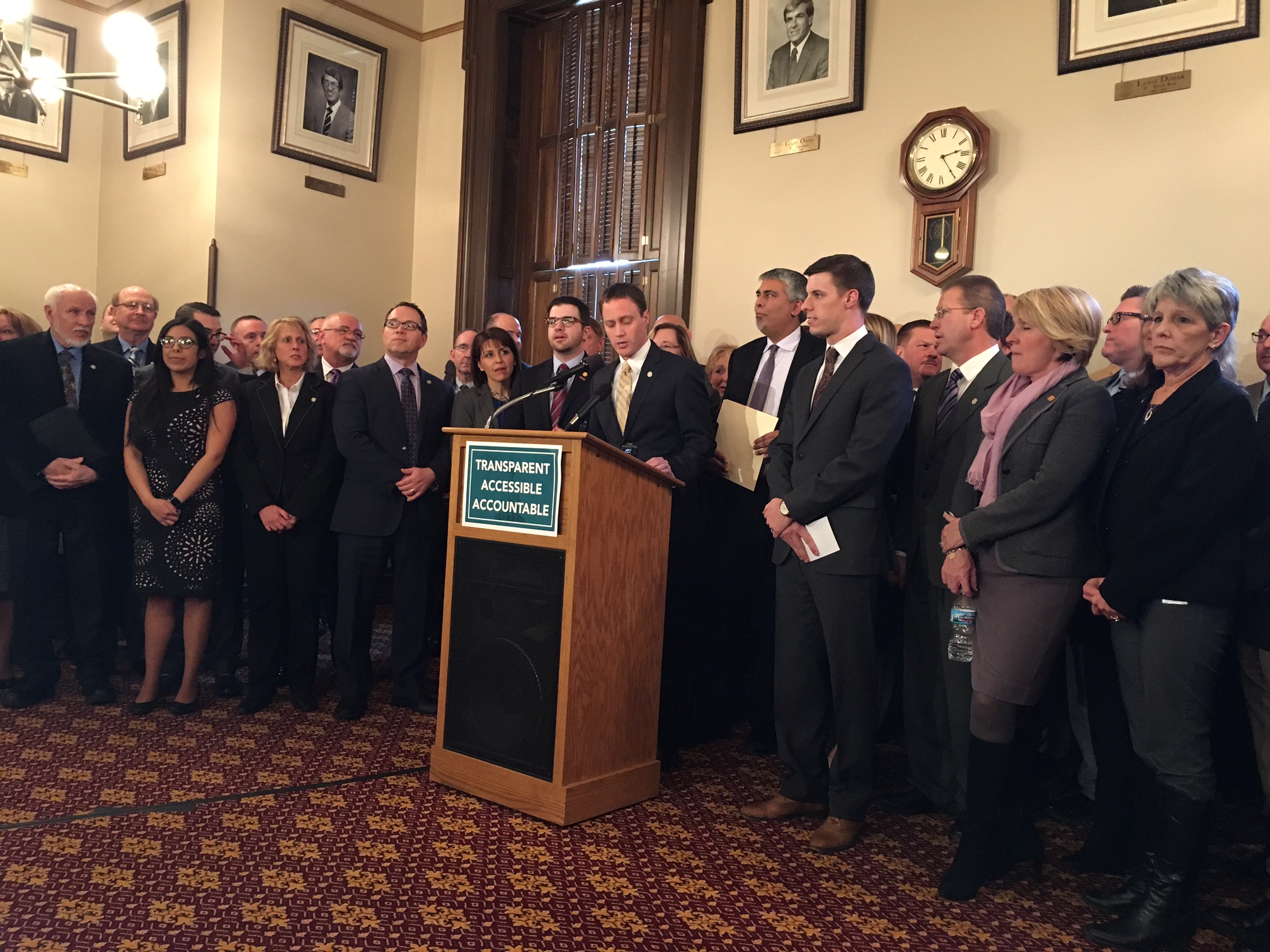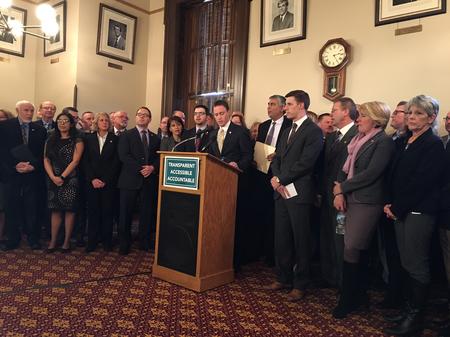Governor, Legislature Would Be Subject to FOIA Under Bill Package
Michigan is ranked among the worst states in the country when it comes to government ethics and access laws.


Michigan and Louisiana are the only two states that don’t apply their public records laws to the legislature and the governor’s office. A bipartisan group of Michigan lawmakers have rolled out bills to change that.
Michigan is ranked among the worst states in the country when it comes to government ethics and access laws.
State House Speaker Tom Leonard (R-DeWitt) says, at the same time, the public is demanding more accountability at every level of government.
“And I can think of no better way to do that than by bringing more transparency so that they have more information about what we’re doing,” he said at a press conference with more lawmakers standing up front than journalists covering it.
The bills would require the Legislature and the governor to open more records and communications to anyone who asks for them.
State Rep. Lee Chatfield (R-Levering) says local governments in Michigan already live under these rules.
“We have a system of government that is intended to serve the people, and I think it’s time our public records are now open to those people,” he said. “If transparency is good for local governments, then the executive branch and the Legislature should be no exception.”
One of the bills would ensure constituent communications with legislators and the governor would remain confidential.
State Rep. Jeremy Moss (D-Southfield) says giving people more access to information is something Democrats and Republicans can agree on.
“Citizens of this country want more control over their government,” he said. “They want more information and more access to how their government decisions are made – from the president to the governor to us here in the state Legislature.”
Republicans and Democrats in the state House might agree on this. But that agreement does not extend to agreement between the House and the Senate – which are both under GOP control. The House adopted similar bills last year with wide bipartisan support, only to have them die in the Senate with no action by the end of the session.

